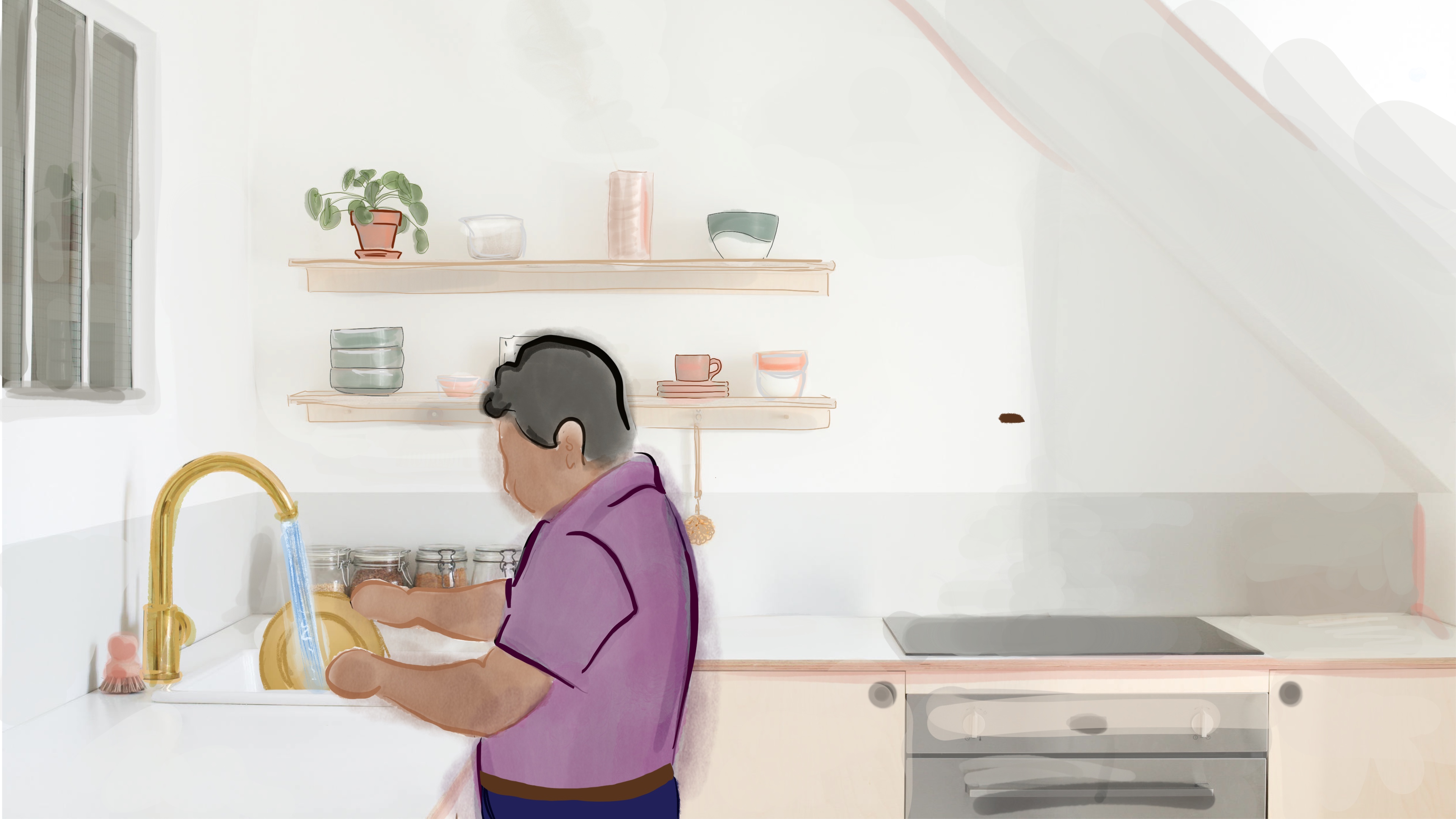
This is a simple task that reveals a quirky blindspot.
It does require having a housemate (a partner, a roommate) who's willing to try it too. If you have one, get started!
Use the slider bars to answer the following questions:
At home, how often do you...
Ross, M. & Sicoly, F. (1979). Egocentric biases in availability and attribution. Journal of Personality and Social Psychology, 37(3), 322.
Outsmarting Implicit Bias is a project founded by Mahzarin Banaji, devoted to improving decision-making using insights from psychological science. "How often do you wash the dishes?" was created by Olivia Kang, Moshe Poliak, Kirsten Morehouse, Sanden Averett, and Mahzarin Banaji, based on research by Michael Ross and Fiore Sicoly (1979). Support for OutsmartinImplicit Bias comes from PwC, Harvard University, and the Association for Psychological Science.